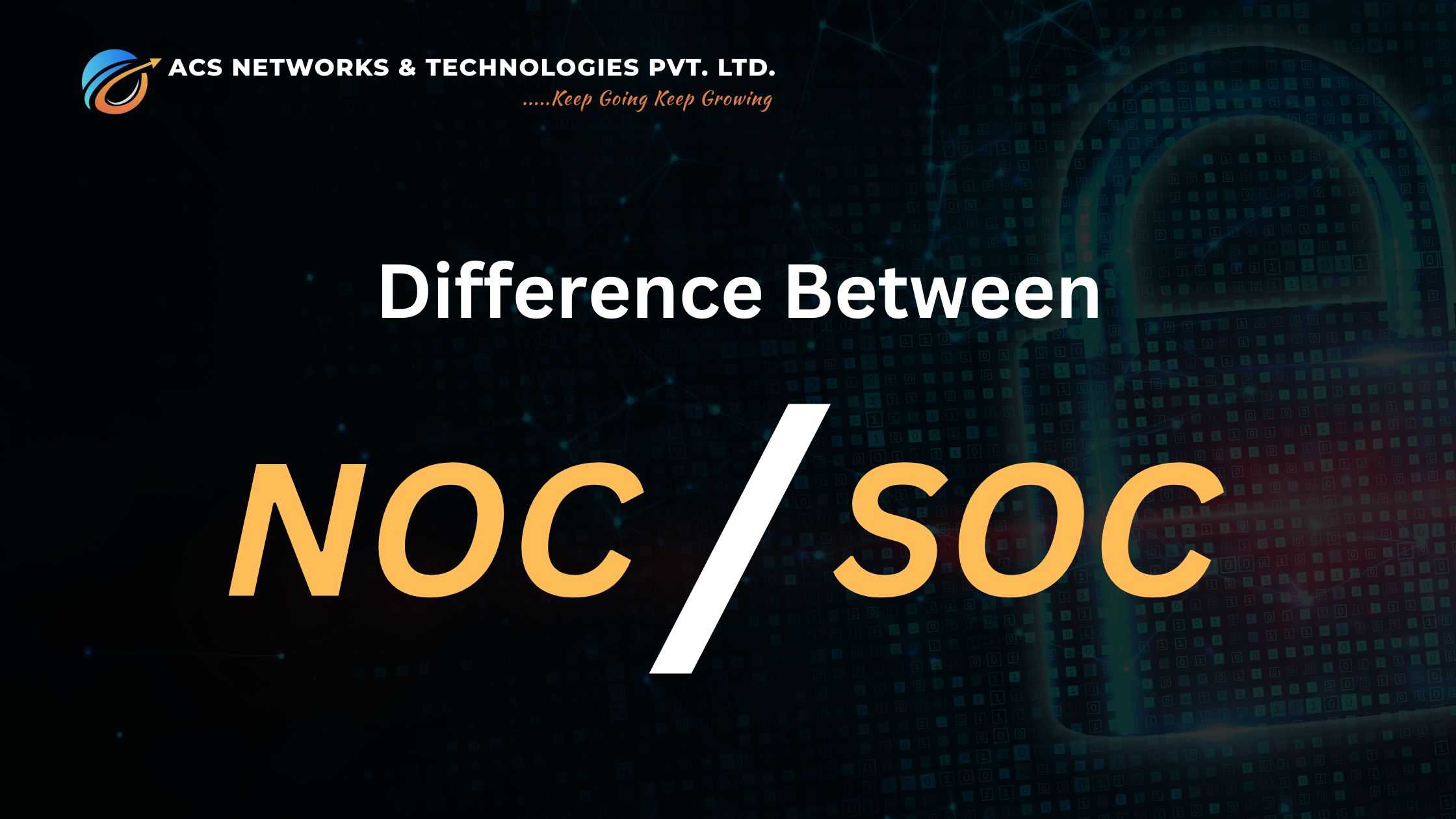Difference Between NOC and SOC Support
Introduction:
In today's digitally-driven world, businesses rely heavily on their IT infrastructure to operate efficiently. With the increasing complexity of networks and the evolving threat landscape, the need for robust support services has become more critical than ever. Two key pillars of IT infrastructure support, Network Operations Center (NOC) and Security Operations Center (SOC), play distinct yet interconnected roles in ensuring the smooth functioning and security of IT environments. In this guide, we'll delve into the nuances of NOC and SOC support, highlighting their differences, functions, and significance in modern business operations.

NOC (Network Operation Center) Support:
The Network Operations Center (NOC) is the nerve centre of an organization's IT infrastructure. It is primarily responsible for monitoring and managing the health, performance, and availability of network devices, servers, and applications. NOC engineers proactively detect and address network issues to minimize downtime and ensure optimal performance.
Key functions of NOC support include:
Monitoring Network Infrastructure: NOC engineers use advanced monitoring tools to continuously monitor network devices, including routers, switches, and servers, to identify performance bottlenecks, network congestion, or hardware failures promptly.
Incident Management: In the event of a network outage or performance degradation, NOC engineers spring into action to troubleshoot and resolve the issue swiftly. They follow predefined protocols and escalation procedures to ensure timely resolution and minimal impact on business operations.
Performance Optimization: NOC teams analyze network traffic patterns and performance metrics to identify opportunities for optimization. This may involve adjusting network configurations, deploying additional resources, or implementing performance-tuning measures to enhance network efficiency.
SOC (Security Operation Center)Support:
While NOC focuses on monitoring and managing network infrastructure, the Security Operations Center (SOC) protects organizations against cybersecurity threats. SOC analysts are tasked with detecting, analyzing, and responding to security incidents to safeguard sensitive data and mitigate risks. Key functions of SOC support include:
- Threat Detection: SOC analysts leverage advanced security tools and technologies to monitor network traffic, log data, and system events for signs of suspicious or malicious activity. They employ techniques like intrusion detection, threat intelligence analysis, and behaviour analytics to detect and classify security threats accurately.
- Incident Response: When a security incident is detected, SOC analysts initiate a rapid response process to contain the threat, investigate the root cause, and mitigate its impact. This may involve isolating compromised systems, conducting forensic analysis, and implementing remediation measures to prevent future occurrences.
- Security Monitoring and Analysis: SOC teams continuously monitor security events and alerts to identify emerging threats and vulnerabilities. They analyze security logs, conduct threat-hunting activities, and collaborate with threat intelligence sources to stay ahead of evolving cyber threats.
Difference Between NOC and SOC Support:
While NOC and SOC support share a common goal of ensuring the reliability and security of IT infrastructure, they differ significantly in their focus, scope, and objectives. Here's a concise comparison of NOC and SOC support:
- Focus:
- NOC Support: Primarily focuses on monitoring and managing network infrastructure to ensure optimal performance and availability.
- SOC Support: Primarily focuses on detecting, analyzing, and responding to cybersecurity threats to protect against data breaches and unauthorized access.
- Function:
- NOC Support: Manages network devices, servers, and applications, optimises performance, and resolves network issues.
- SOC Support: Monitors security events, detects and responds to security threats, conducts incident response, and enhances cybersecurity posture.
- Objective:
- NOC Support: Aims to maintain network uptime, optimize performance, and ensure seamless business operations.
- SOC Support: Aims to protect sensitive data, mitigate cybersecurity risks, and prevent security breaches and incidents.
Conclusion:
In conclusion, NOC and SOC support are indispensable components of modern IT operations, each playing a crucial role in ensuring the reliability, performance, and security of organizational networks. While NOC focuses on managing network infrastructure and maintaining uptime, SOC is dedicated to protecting against cybersecurity threats and mitigating risks. By understanding the key differences between NOC and SOC support, organizations can effectively leverage both functions to achieve a resilient and secure IT environment.



